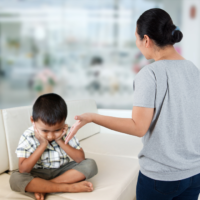Environmental influences
-

How useful are Ofsted ratings for predicting educational outcomes and wellbeing at secondary school?
“The factors parents care about most when selecting a school – their child’s educational achievement and wellbeing – are negligibly predicted by Ofsted ratings”, says Sophie von Stumm, lead researcher of a new study published in the Journal of Child Psychology and Psychiatry.
Read more -

Utilization of peer-supported youth hotlines is on the rise
New data suggest that there has been a significant increase in the use of a peer-supported youth hotline between 2010 (~8,000 annual contacts) and 2016 (>12,000 annual contacts). Berit Kerner and colleagues evaluated >67,000 contacts made to a hotline based in Los Angeles, USA.
Read more -

Depressed mothers and their offspring differ in terms of health risk profiles and allostatic load
Allostatic load is essentially the “wear and tear” that accumulates in the body in individuals exposed to chronic stress. Because some patients with psychiatric disorders have a shorter lifespan than their healthy counterparts,1 some researchers have suggested that there might be a link between disorders such as depression and increased allostatic load.
Read more -

Developments in Eating Disorders Research
As everyone’s thoughts are dominated by the impact of COVID-19 on mental health and wellbeing, it seems pertinent to start by thinking how people with or at risk of eating disorders may have been affected. Research suggests that the impacts differ according to the type of eating disorder concerns and behaviours.
Read more -

Nigerian young people from parentally deprived backgrounds show enhanced working memory capacity
Early adverse rearing can impair cognitive functions in all domains.1 However, those who take an evolutionary–developmental stance propose that there could be adaptive benefits associated with early adverse rearing.2,3
Read more -

September 2020 – The Bridge
The month of September is a challenging time for young people, as they start a new school year. September 2020 will be particularly difficult for many, as they must also deal with the stresses of the coronavirus pandemic and social distancing, as well as the effects of increasing financial pressures on families.
Read more -

Poor sleep quality in adolescence might contribute to poor psychological functioning
Sleep problems affect up to 25% adolescents and have frequently been associated with psychopathology. Now, Marije Vermeulen and colleagues have investigated whether short and/or problematic sleep truly contributes to psychological functioning.
Read more -

Genetic and environmental influences on callous-unemotional traits vary with age
Research on callous-unemotional (CU) traits explores the relative importance of genetic versus environmental influences on the initial risk and trajectory.
Read more -

Which young people are at greatest risk of repeat admission to psychiatric care?
Researchers in Canada have published their latest data on the demographic, socioeconomic and clinical predictors of youth re-admission to inpatient psychiatric services
Read more -

Can boosting physical activity improve ADHD symptoms in preschoolers?
“Our study findings highlight the possibility that MVPA might be a tool that can be used to reduce preschoolers’ ADHD behaviours and associated impairments, especially for young children at risk for ADHD” Betsy Hoza.
Read more